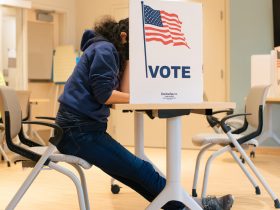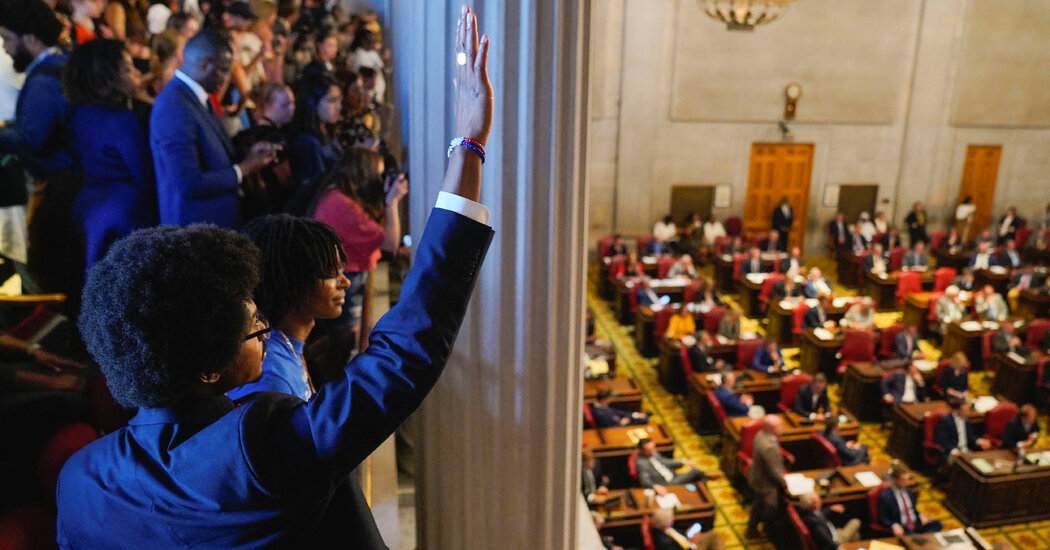Mr. Pearson and Mr. Jones, by contrast, were banished for using a bullhorn to lead a mass of demonstrators in chants for more restrictive gun legislation in the wake of a school shooting that killed three children and three adults. The protest was rowdy but peaceful. No property was damaged. No one was arrested or injured. When the Tennessee House speaker, Cameron Sexton, called for security to clear the chamber’s galleries, the crowd left.
Mr. Sexton nonetheless suggested that compared with the Jan. 6 attack on the U.S. Capitol, this protest was “at least equivalent, maybe worse,” and his fellow Republicans accused the Democrats of breaching the rules of decorum and bringing “disorder and dishonor” to the House. They declined to remove a third Democrat involved in the action, Gloria Johnson. Republicans said the disparate outcomes were because Mr. Pearson and Mr. Jones used a bullhorn during the protest while Ms. Johnson did not. Others, including Ms. Johnson, posited that the difference was that the two ousted legislators are Black and she is white.
Certainly, every institution that serves as a forum for public discussion has to balance the need to allow open debate, vehement dissent and, at times, disruptive protest and other forms of protected political speech with the need to prevent violence or allow threats of disruption that have the effect of silencing speech. There is a long history in Congress and in statehouses of passionate political disagreements that boil over into protest.
But not every protest poses a threat or merits a punitive response.
In June 2016, with Republicans in control of the U.S. House of Representatives, members of the Democratic minority staged a sit-in at the Capitol to demand votes on gun-control legislation. Led by Representative John Lewis, the civil rights icon, a gaggle of Democrats spread out across the House floor, chanting, singing protest songs and using their phones to livestream the action, which technically violated House rules. Republicans grew frustrated and angry, and congressional business was upended as the protest stretched to nearly 26 hours — far longer than the action in Nashville. Several months later, Republican members adopted rules aimed at deterring future sit-ins, but none of the Democrats were censured or otherwise singled out for punishment.
In 2008 the Republican minority refused to leave the floor of the House after the chamber went into summer recess, to protest the speaker’s refusal to schedule a vote on offshore drilling. That protest lasted 35 days, with Republican lawmakers giving speeches and even inviting members of the public onto the floor, which generally is not allowed.
















Leave a Reply